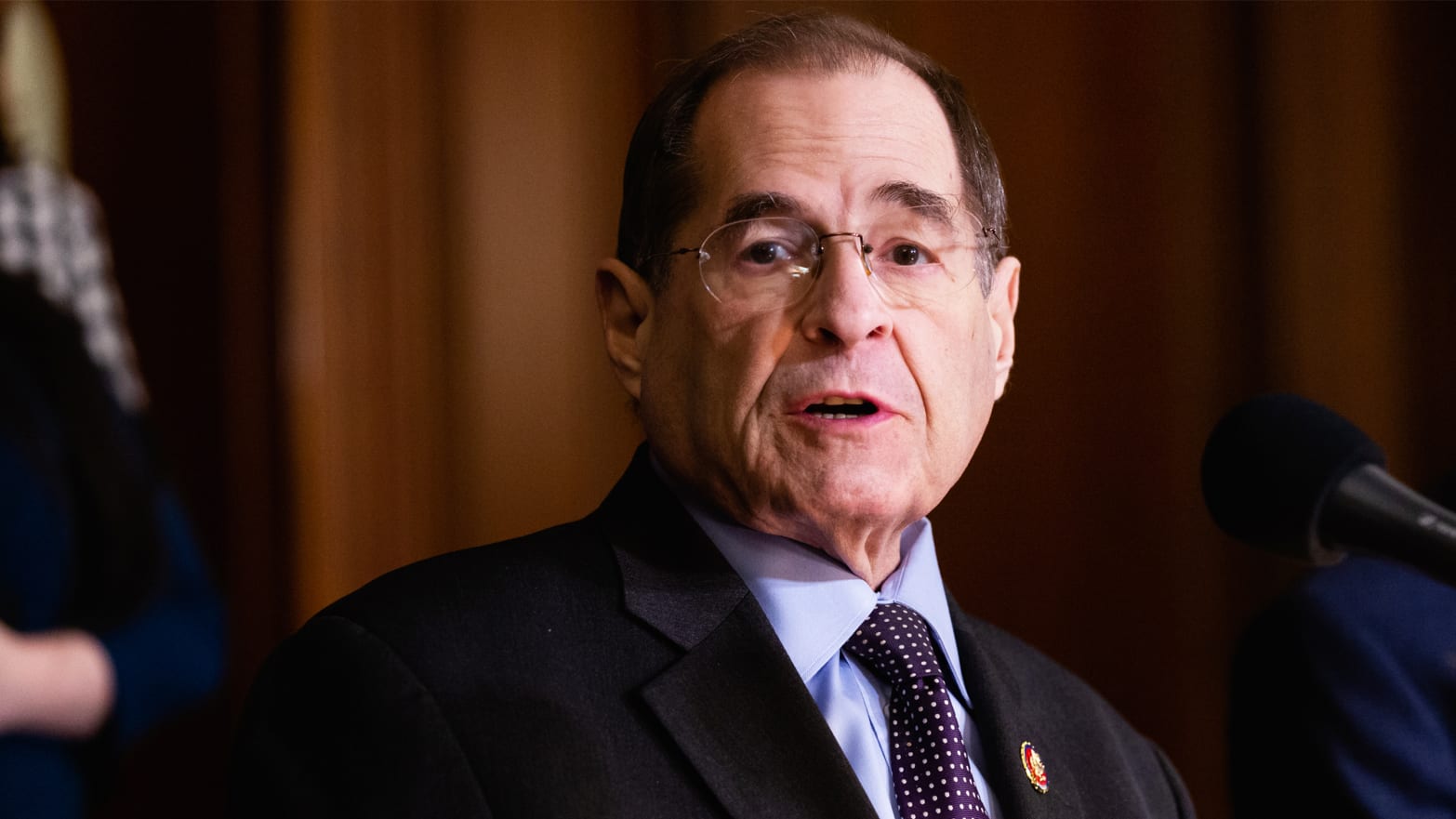When House Judiciary Committee Chairman Jerry Nadler (D-N.Y.) announced on Monday that he had reached an agreement with the Justice Department to view some of the underlying evidence behind Special Counsel’s Robert Mueller’s report. The announcement was hailed as a major breakthrough for the Democratic Party’s oversight efforts.
But Nadler may get less than expected.
That’s because the Trump White House will work with the Justice Department to decide what exactly the committee gets to see, two senior administration officials told The Daily Beast. And, so far, the White House has not waived executive privilege regarding any of Mueller’s materials, the two officials said.
Neither official would discuss if the White House plans to use executive privilege to limit Nadler’s access to documents. But, thus far, the administration has pushed back against many congressional oversight efforts. And Trump’s personal lawyers sued to try to block banks from sharing some of the president’s financial information with the House Financial Services Committee. Democrats say the administration is engaged in unprecedented stonewalling efforts. Most notably, the White House ordered former White House Counsel Don McGahn––a star witness in the Mueller report––to defy a subpoena from the House Judiciary Committee. McGahn has followed the president’s orders, frustrating Nadler’s efforts to create an on-camera discussion by a first-person witness of the president’s efforts to curb Mueller’s work.
The deal reached on Monday still gives Congress expanded access to Mueller’s work. All the members of the House Judiciary Committee, as well as some committee staff, will be able to read some evidence at Justice Department headquarters in downtown D.C. They will be able to take notes on what they read, and they will be able to take those notes with them when they leave the building.
Nadler’s efforts to view Mueller’s underlying evidence––including notes from FBI interviews of witnesses––come as many members of the restive House Democratic caucus are eager to see their leadership investigate and confront Trump more aggressively. Dozens of members have called on House Leadership to open an impeachment inquiry, but Speaker Nancy Pelosi (D-CA) has resolutely opposed any such move.
Instead, the House will vote on a largely symbolic resolution on Tuesday regarding efforts to enforce congressional subpoenas. The resolution is sometimes called a “contempt vote,” but the word “contempt” is not in its text. Rather, it simply reiterates a legal view that House Democratic Leadership already holds: that the five top members of the House can green-light civil litigation by committee chairs who want federal judges to make witnesses comply with their subpoenas.
Democratic staff who briefed reporters on the vote several days before it was scheduled said the resolution is important because it lets members of Congress take a vote to support subpoena enforcement efforts. But the vote doesn’t actually affect how or if those subpoenas get enforced. And while the resolution says Congress can try to enforce Nadler’s subpoena demanding Barr fork over Mueller’s underlying evidence, Nadler has agreed to hold off on enforcement moves because of the deal he announced yesterday.

